Choosing the right door material is essential for both functionality and aesthetics.
Whether you prioritize security, energy efficiency, or design, the material you select will impact your home’s performance.
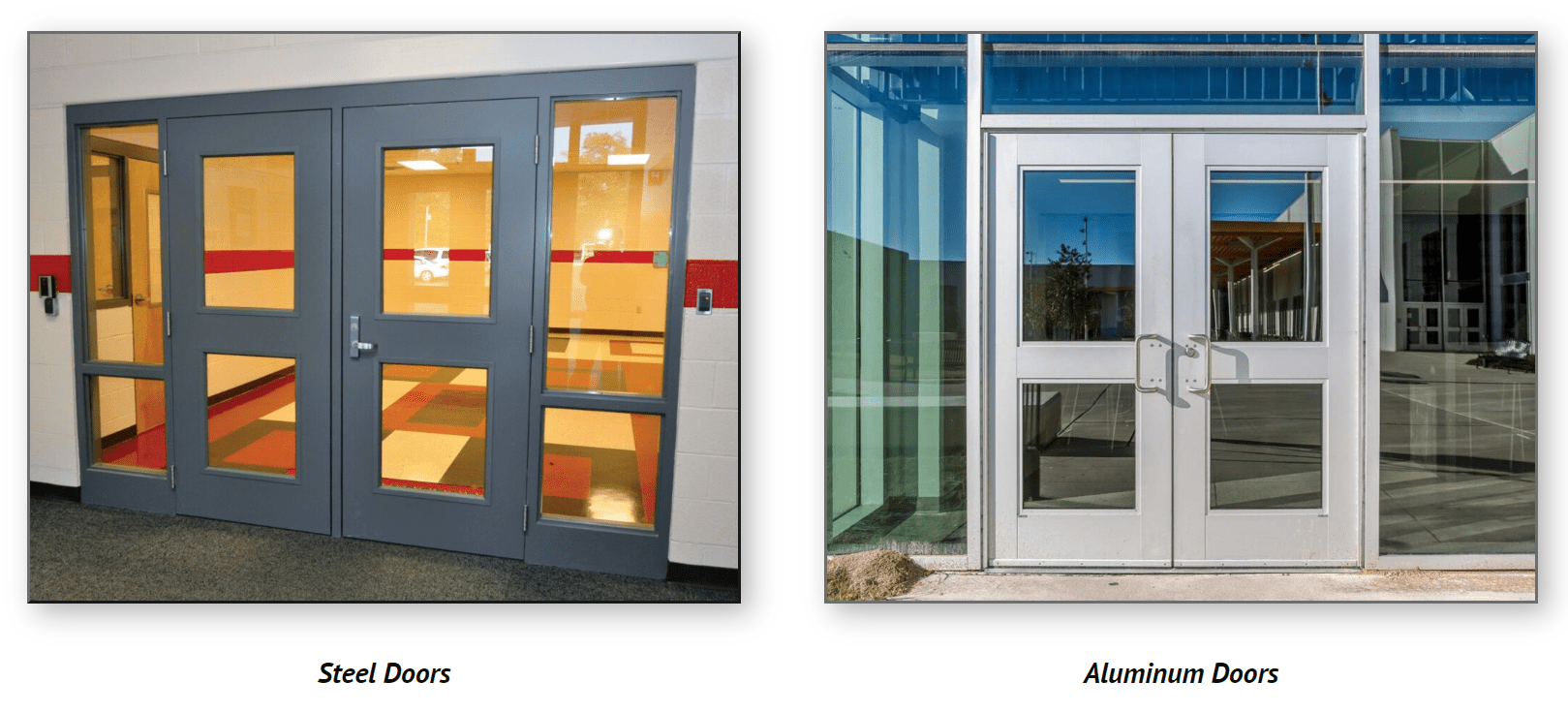
Steel doors offer strength and protection, while aluminum doors provide sleekness and low maintenance.
Factors like climate, security needs, and style preferences will guide your decision.
What Are Aluminum Doors?
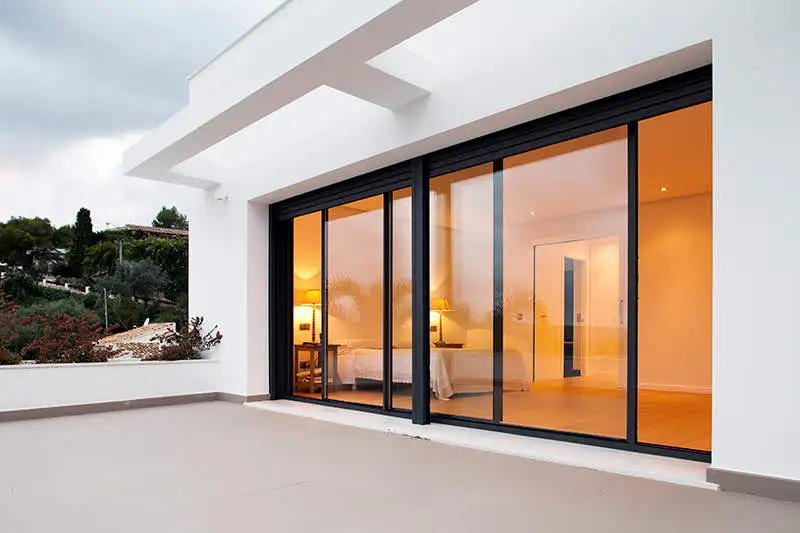
Aluminum doors are made from lightweight yet durable metal, offering an ideal solution for homeowners looking for low-maintenance, corrosion-resistant options.
They are commonly used for both residential and commercial purposes due to their sleek design and strength.
- Lightweight: Easy to handle and install.
- Corrosion-resistant: Perfect for coastal regions with salty air.
- Low maintenance: Minimal upkeep needed.
- Sleek design: Modern and aesthetic, fitting various home styles.
Cons of Aluminum Doors:
- Less durable than steel: More prone to denting or damage.
- Higher initial cost: Typically more expensive than wood or vinyl.
- Limited insulation: While energy-efficient, aluminum can allow more heat transfer compared to other materials.
What Are Steel Doors?
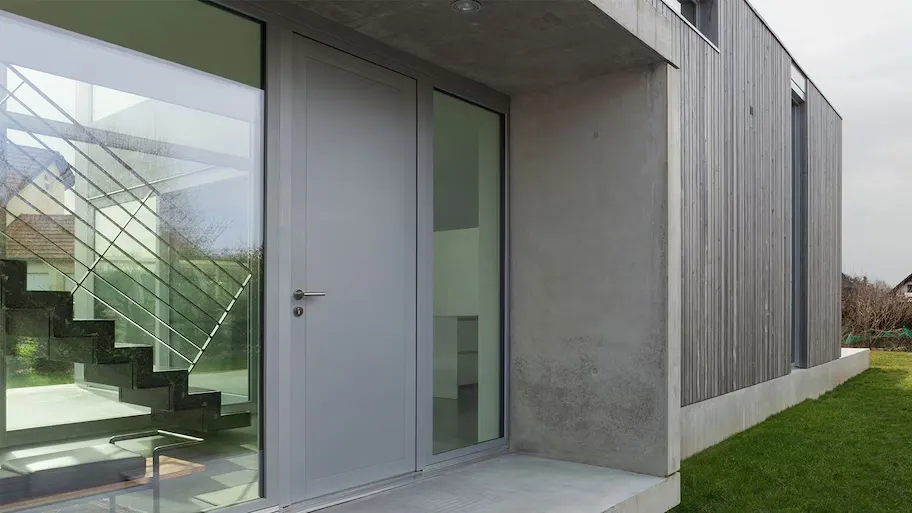
Steel doors are made from heavy-duty metal, providing superior strength and security.
These doors are ideal for those looking for a durable option that offers high protection against forced entry, weather conditions, and daily wear and tear.
Pros of Steel Doors:
- Superior strength: Highly resistant to impacts and forced entry.
- Excellent security: Ideal for protecting your home or business.
- Low maintenance: Durable and requires minimal care.
- Great insulation: Offers better energy efficiency with foam cores.
Cons of Steel Doors:
- Prone to rust: Needs maintenance or coatings to avoid corrosion.
- Heavy weight: Can be difficult to handle and install.
- Prone to dents: Can get damaged with heavy impacts, requiring repairs.
Key Differences Between Steel and Aluminum Doors
Steel doors are highly durable and long-lasting, making them ideal for high-security needs.
They offer superior strength but require more maintenance, such as occasional painting.
Aluminum doors, on the other hand, are lightweight, corrosion-resistant, and low-maintenance, but they may not be as strong as steel.
Security Comparison: Steel vs Aluminum
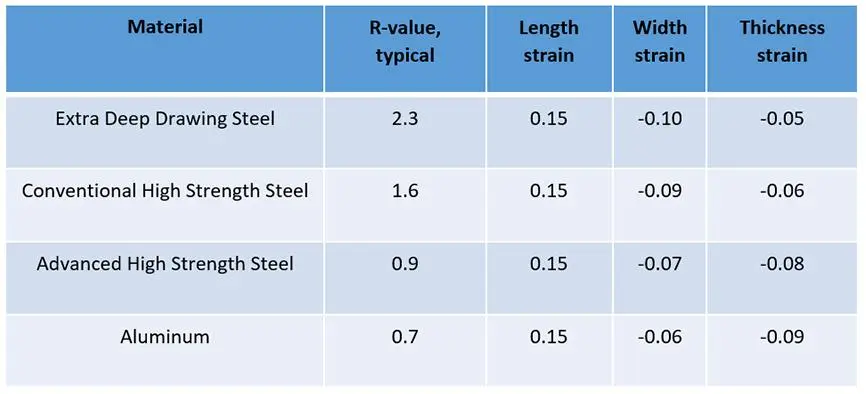
Steel doors provide superior security due to their strength and ability to resist forced entry.
They are ideal for high-risk areas, such as front entrances.
Aluminum doors, while not as strong as steel, offer excellent rust resistance, making them suitable for coastal or humid climates.
For maximum security, steel doors are recommended, while aluminum doors are a solid choice when rust protection is a priority.
Energy Efficiency: Which Door is More Insulated?
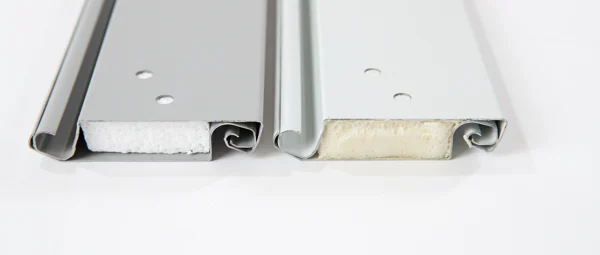
Steel doors with foam core insulation provide excellent thermal performance, helping to regulate indoor temperatures and reduce energy costs.
Aluminum doors, though lightweight, tend to transfer more heat.
However, modern aluminum doors with thermal breaks and weatherproofing features significantly improve energy efficiency.
For the best insulation, steel doors are superior, while aluminum doors are a good alternative for climates with moderate temperatures.
Aesthetic Appeal and Design Options
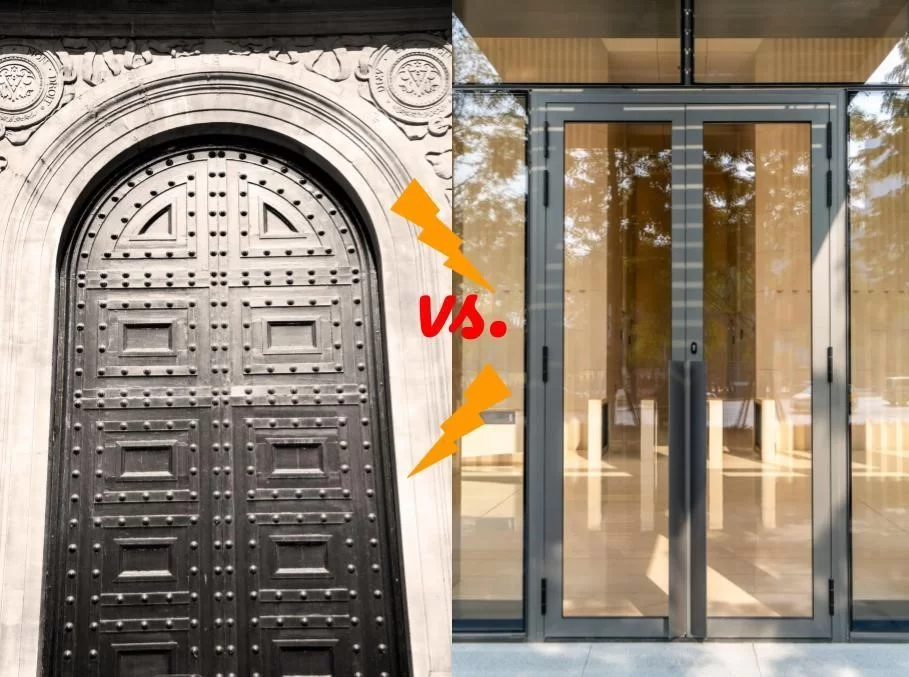
Steel doors offer flexibility in design, allowing for intricate patterns, custom glass cutouts, and unique finishes.
Aluminum doors, on the other hand, have a sleek, modern look, with narrower frames and larger glass areas that maximize natural light.
Both materials offer various finishes, such as anodized, powder-coated, and painted options.
Steel doors work well with traditional and industrial designs, while aluminum is perfect for contemporary or minimalist homes.
Durability and Resistance to Weather Conditions
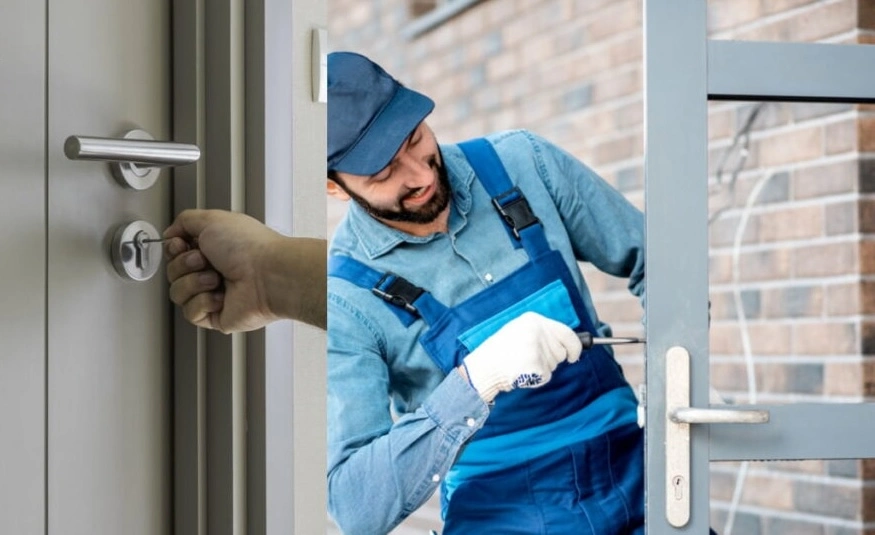
Steel doors are known for their ability to withstand extreme weather conditions.
They are highly resistant to warping, moisture, and heavy rain, making them ideal for areas with harsh climates.
Aluminum doors are also durable, particularly in coastal regions where salt air and high humidity are common.
The corrosion resistance of aluminum makes it the go-to choice for homes near the coast, where other materials might suffer from rust and decay.
Cost Comparison

When considering the upfront costs, steel doors typically come at a lower price than aluminum doors.
However, steel doors may require more maintenance, including repainting and occasional repairs due to dents and scratches.
Aluminum doors, while often more expensive upfront, require minimal maintenance and last longer without the need for repainting.
In the long term, aluminum doors may offer better value for money due to lower upkeep costs and longer lifespan.
When to Choose
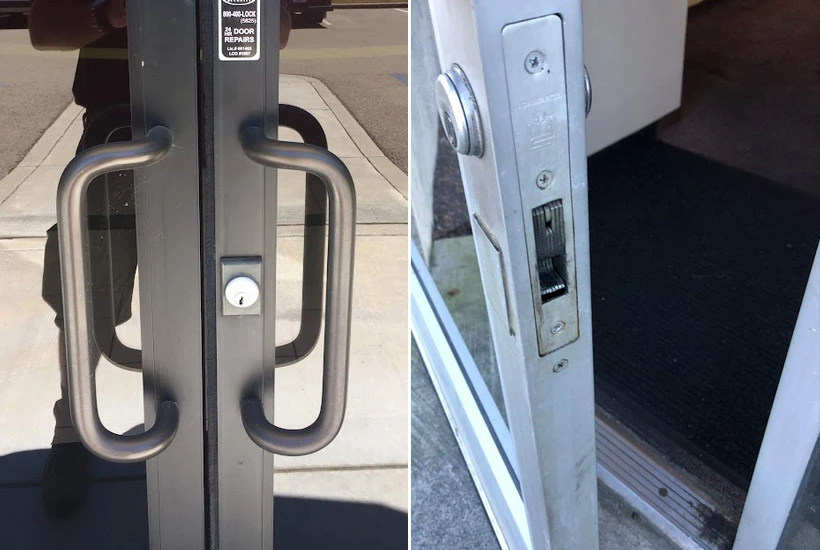
Steel doors are ideal for applications where high security, durability, and insulation are top priorities.
These doors are well-suited for entryways, commercial buildings, and areas prone to extreme weather.
Aluminum doors are best for modern aesthetics, lighter weight, and corrosion resistance.
These doors work well in coastal areas, contemporary homes, and high-traffic spaces where sleek, minimalist designs are preferred.
Conclusion

Steel doors offer unmatched security and durability, making them ideal for high-risk areas.
On the other hand, aluminum doors provide sleek designs, low maintenance, and corrosion resistance, perfect for modern aesthetics and coastal climates.
For guidance in selecting the right door for your needs, feel free to contact us.
FAQs About Steel Doors Vs Aluminum Doors
Which is better: steel or aluminum door?
Steel doors are generally more durable and offer superior strength, making them better for high-security applications. However, aluminum doors are lightweight, corrosion-resistant, and easier to maintain, making them a great option for those seeking low-maintenance, sleek doors.
What are the disadvantages of steel doors?
Steel doors can dent upon impact, and if the paint gets chipped, they may rust over time if exposed to moisture. They require periodic maintenance to maintain their appearance and avoid corrosion.
Are steel doors more expensive than aluminum?
Steel doors tend to be more expensive due to the manufacturing process, which requires more labor and operations. Aluminum doors are usually more affordable, making them a cost-effective option for those with budget constraints. However, steel doors offer long-term value through durability.
![Apro logo - 7 Benefits of Aluminum Doors: Durability and Efficiency [2026] - APRO Apro logo](https://aprowin.com/wp-content/uploads/2024/08/Apro-logo.webp)


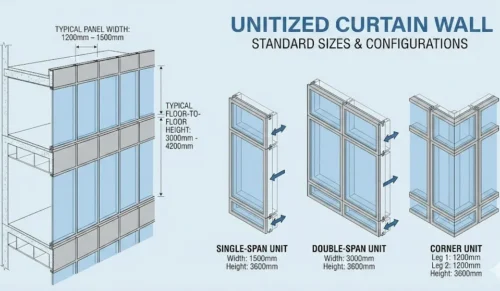

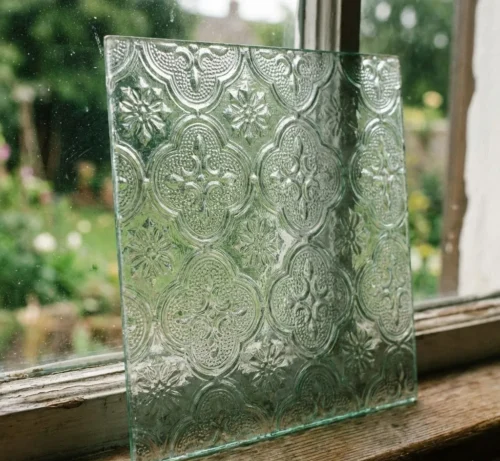

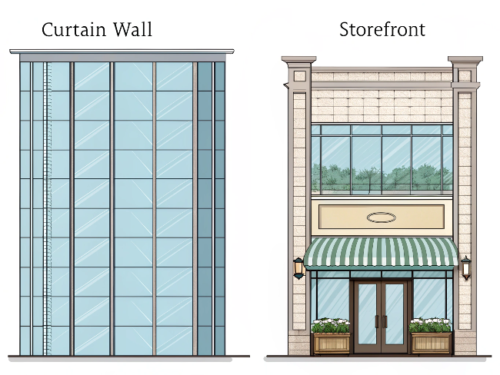
![APRO logo white - Replace Your Door Without Replacing Frame [février 2026] - APRO APRO logo white](https://aprowin.com/wp-content/uploads/2024/07/APRO-logo-white.webp)